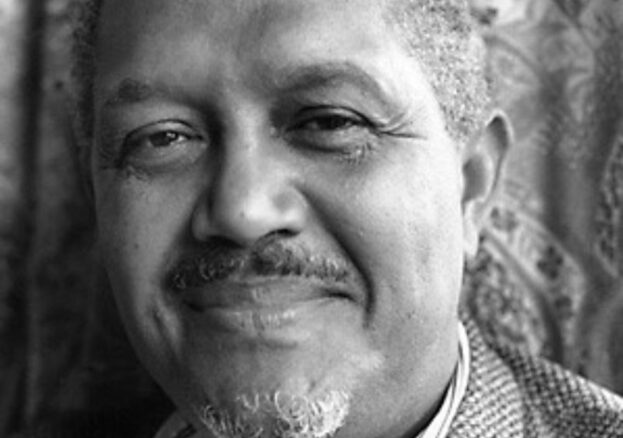
As we commemorate Black History Month, it’s vital to honour the life and legacy of John Anthony La Rose (1927-2006), whose work profoundly influenced the cultural and political landscape of Britain. La Rose, a Trinidadian-British poet, publisher, and activist, was more than just a figurehead; he was a foundational pillar in the struggle for cultural recognition and social justice within the Black community. His pioneering initiatives, such as New Beacon Books and the Caribbean Artists Movement (CAM), challenged entrenched colonial narratives and fostered a renewed sense of pride and identity among Black Britons.
Early Life and Awakening
Born in Trinidad and Tobago, John La Rose was shaped by a rich cultural heritage and the complexities of colonialism. His migration to Britain in the 1950s coincided with the arrival of the Windrush generation, a pivotal moment in British history that highlighted the need for recognition and equality for Caribbean immigrants. La Rose, witnessing the systemic marginalisation of Black voices, dedicated his life to uplifting our community and preserving its rich cultural heritage. He understood that to be truly seen and respected, we needed to assert our narratives and celebrate our histories.
Challenging Colonial Narratives
La Rose’s work was a direct challenge to the damaging colonial narratives that had long sought to undermine Black culture. The myth of cultural inferiority was one such narrative he tirelessly opposed. Through New Beacon Books, La Rose published works that showcased the depth and diversity of Caribbean and African cultures, countering the harmful myths that had been perpetuated. His publishing house became a bastion for voices that mainstream publishers often ignored, offering a platform for stories and perspectives that celebrated our intrinsic value and rich traditions.
In education, La Rose tackled the pervasive Eurocentrism that often excluded or distorted the histories of non-European peoples. He sought to rectify this imbalance by advocating for a more inclusive and accurate portrayal of global histories. His work was not just about filling gaps in the record but about reclaiming the dignity and agency of Black people throughout history.
La Rose also stood against the “civilising mission” narrative, which falsely portrayed European colonisers as benefactors to “backward” societies. He highlighted the sophisticated cultural and intellectual traditions of the Caribbean and African regions, challenging this patronising view and affirming the inherent worth of our cultures.
Moreover, La Rose worked diligently to recover and highlight the rich histories of resistance, resilience, and creativity within the Black community. He combated racial stereotypes by supporting literature and art that portrayed Black people as complex, multifaceted individuals, thus challenging the dehumanising depictions often seen in mainstream culture.
He celebrated the diversity within the Caribbean and African diaspora, countering the monolithic view often imposed by colonial perspectives. La Rose’s efforts illuminated the distinct languages, traditions, and histories of various groups, fostering a deeper appreciation for our cultural diversity and solidarity.
The Caribbean Artists Movement (CAM)
In 1966, La Rose co-founded the Caribbean Artists Movement (CAM), a revolutionary initiative that provided a platform for artists, writers, and intellectuals from the Caribbean and African diaspora. CAM wasn’t merely an artistic endeavour; it was a cultural revolution that confronted Eurocentric narratives head-on and promoted authentic portrayals of Black life. The movement created a critical space for dialogue about identity, history, and the legacies of colonialism. Kamau Brathwaite, a poet and cultural theorist, aptly described La Rose as “a guiding light for all of us,” highlighting his unwavering commitment to cultural authenticity and community empowerment.
New Beacon Books: A Platform for Black Literature
New Beacon Books, founded in 1966, was one of the first Black publishing houses in Britain. This venture was crucial in providing a platform for Caribbean and African voices, often overlooked by mainstream publishers. The press published works exploring the effects of colonialism and celebrating the rich cultural tapestry of our community. John Agard, a poet and playwright, remarked, “John La Rose’s vision for New Beacon Books was transformative. He provided a platform that celebrated our stories and struggles, offering a powerful counter-narrative to the dominant voices.”
Activism and Cultural Advocacy
Beyond his cultural work, John La Rose was a dedicated activist, deeply intertwined with his commitment to combating racism and promoting social justice. He played a crucial role in key movements, such as the Black People’s Day of Action and the New Cross Massacre Action Committee, which responded to the tragic deaths of 13 young Black people in the New Cross Fire of 1981. Linton Kwesi Johnson, known for his groundbreaking contributions to dub poetry and activism, described La Rose as “a cultural warrior” and mentor, noting his significant influence on Johnson’s growth as a writer and activist. Johnson fondly remembers La Rose as a man of great dignity, who commanded respect and inspired many within the community.
Legacy and Passing
John La Rose passed away on 28 February 2006, leaving behind a legacy that continues to inspire and influence. His work not only laid the foundation for the cultural and political empowerment of the Black community in Britain but also left an indelible mark on the global landscape of literature and activism. Linton Kwesi Johnson summarised La Rose’s legacy, stating, “John La Rose was a cultural warrior. He fought tirelessly for the recognition and respect of our heritage. His work has left an indelible mark, not just on our community, but on the entire British cultural landscape.”
John Anthony La Rose’s life and work stand as a testament to the power of cultural reclamation and political activism. His contributions have significantly shaped a more inclusive and representative cultural landscape in Britain. As we celebrate Black History Month, we honour his legacy and reaffirm our commitment to preserving and promoting the rich cultural heritage of our community.
